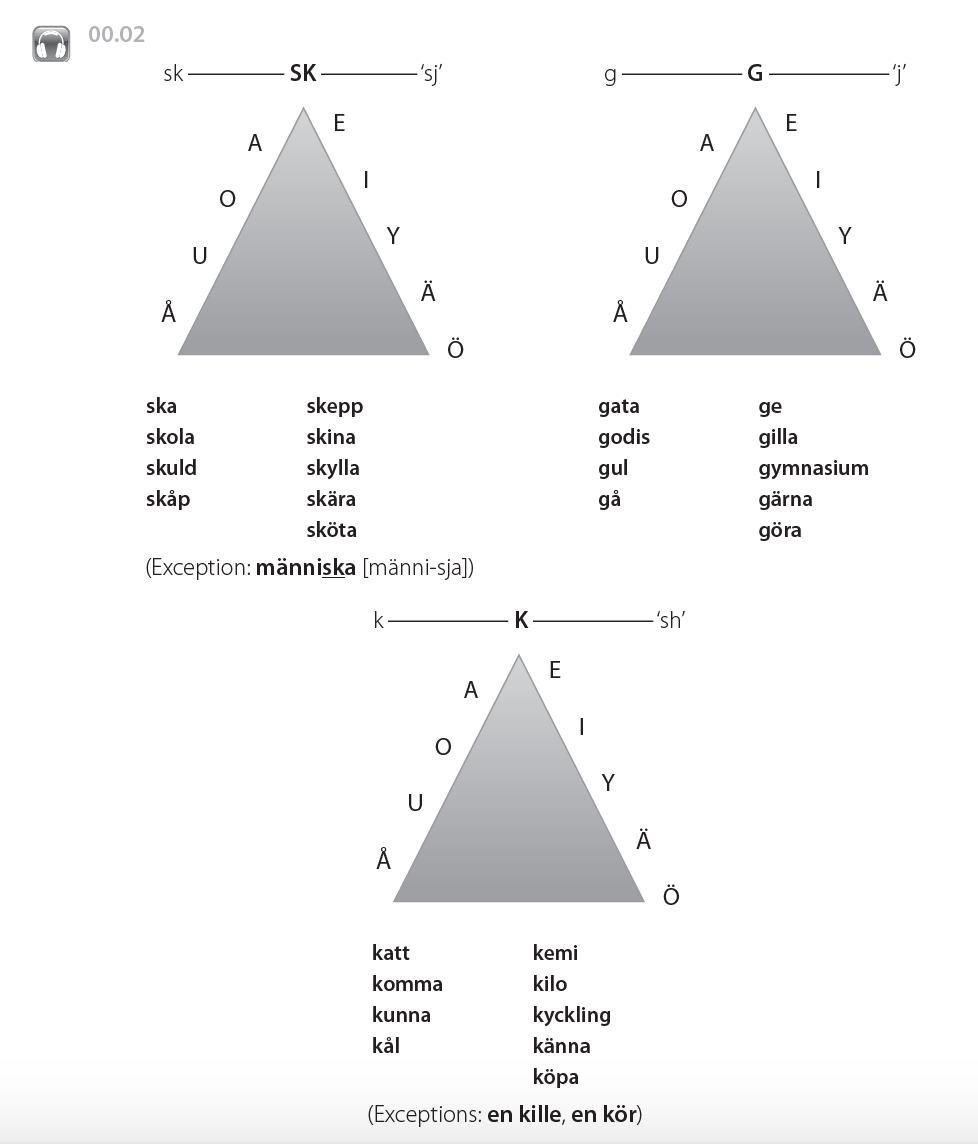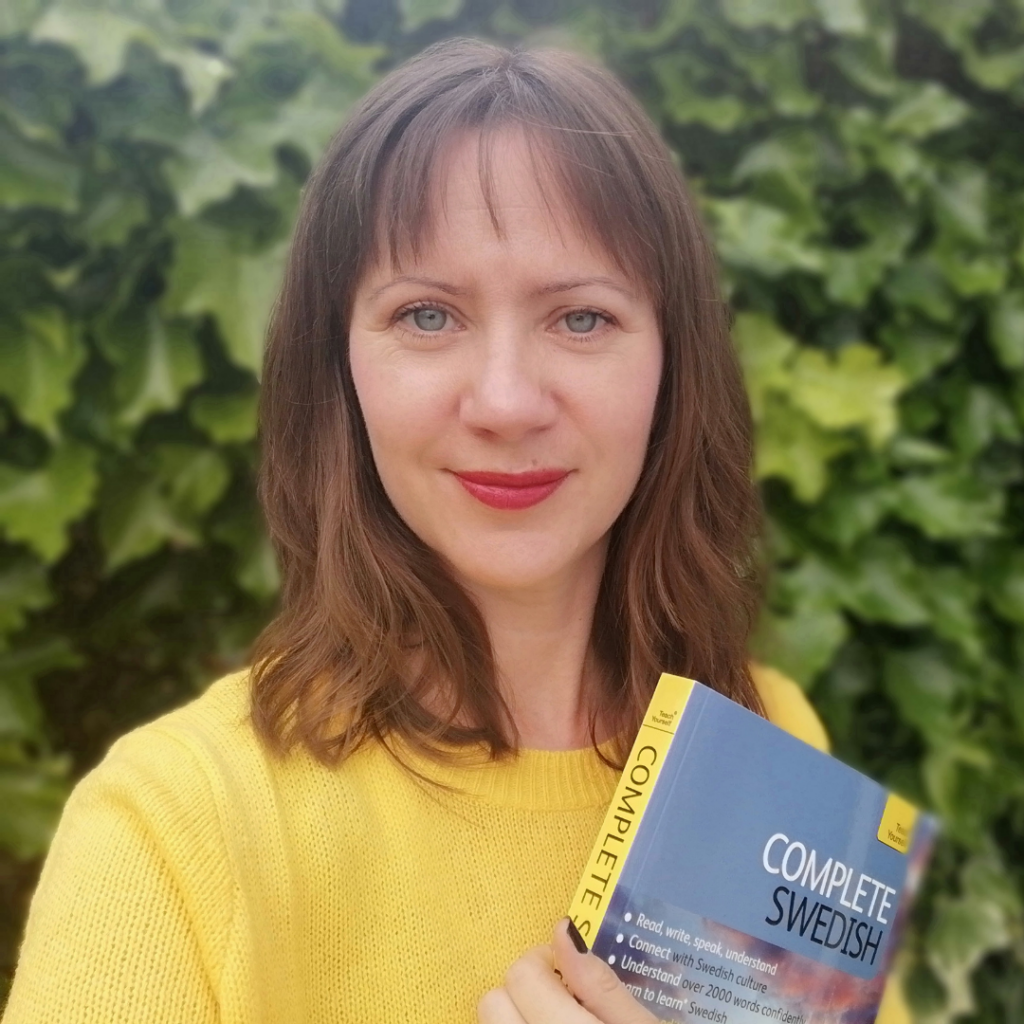Swedish vowels
As you may already know, the Swedish language has 9 vowels. They are: A, E, I, O, U, Y, Å, Ä, and Ö. Note that y is always a vowel in Swedish! However, there is another way of grouping the vowels, rather than just alphabetically. This grouping is according to whether they are ‘soft’ or ‘hard’. This categorisation will help with the pronunciation, as it can give you clues on how to say certain words.
Hard and soft vowels
Hard or soft vowels mean that different vowels will affect certain consonants before them. They will give the consonants either a soft or a hard pronunciation. So, actually, it is not the vowels themselves that are pronounced in a soft or hard way. Instead they affect consonants to be pronounced in a soft or hard way. And which consonants will they affect? They will affect words beginning with K-, G– and SK-.
This actually happens in English too. Just compare how you say café and city. The words both begin with C, but they are pronounced differently. From a Swedish language perspective, I would say that café has a hard kind of C, whereas city has a soft-sounding C. Another example is the different pronunciation of G in the words guest and gist, where I would say guest has a hard-sounding G and gist is soft. So let’s see how this works in Swedish.
Soft vowels: E, I, Y, Ä and Ö
Hard vowels: A, O, U, and Å
If you have any of the so-called soft vowels following either K-, G– or SK-, these consonants change to a softer sounding sound.
G + soft vowels
G– : göra (to do). Pronounced with a soft y sounding sound: “yöööra”. gammal (old) is pronounced with a hard-sounding G, a bit like in the name Gandalf.
K + soft vowels
K– : köpa (to buy): pronounced with a soft sounding ch: “chööpa”. kan (able to/can) is pronounced with a hard k, like in the English “can”.
SK + soft vowels
SK– : sked (spoon): pronounced with a soft sounding sound, the same as in the number 7 (sju): “scheeed”. skola (school) is pronounced hard, like it reads (a separate s followed by a separate hard k): skola.
Because of theses pronunciation rules, there are some Swedish words that seem familiar to the English ear, and may even mean the same thing, but will be pronounced differently. I call these types of words “false friends” – they seem easy and familiar, but are in fact something else. For example:
kilo – means the same thing, a measure of weight, but is pronounced soft because of the I: “chiiilo”
sky – means sky in Swedish too, but is pronounced soft and with a long Swedish Y (like an English “ee” but with a more trumpet/forward-shaped mouth): “schyyy”
sko – means shoe, but this one is hard, because of the O: “skooo”
Exceptions
Of course, there are some exceptions, as always. Look out for the words kille (guy – should theoretically be soft, but we pronounce it hard), and kö (queue) or en kör (a choir) – again, should theoretically be soft, but is instead hard. Many students also struggle with the word människa (person, human being), and try to pronounce it as it reads, although we actually pronounce this “sk” in a soft way: “männischa”.
Here is a summary of the structure of hard and soft vowels after G-, K-, and SK-, taken from my book Teach Yourself Complete Swedish.
Learn more about Swedish pronunciation training here!






